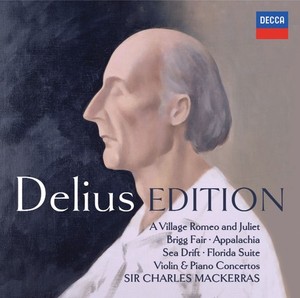

» HOME
» CURRICULUM VITAE
» CONTACT
» LINKS
» REVIEWS
» DEUTSCHE SEITEN
for Mezzo-soprano and String Orchestra (arr. Ron Hannah)
Aria - "Ah, che morir vorrei" and Presto - "Misera abandonata"
ANDREA MELLIS mezzo-soprano
with the National Chamber Orchestra of Armenia, Yerevan, Armenia
Harutyun Arzumanyan, conductor
Concert recording made on November 11, 2017.
ARIA A che morir vorrei in sì fatal momento, Oh! May death come in this dreadful hour! ma al mio crudel tormento But heaven cruelly decrees mi serba ingiusto il ciel. My continued suffering. PRESTO Misera abbandonata non ho chi mi consola. Poor abandoned one, with no one to console her, Chi tanto amai s'invola barbaro ed infedel. My beloved has fled, cruel and disloyal.
* * *
ANDREA MELLIS mezzo-soprano; ZSUZSA ABA-NAGY harp
recorded December 17, 2015
Klaviersalon Gustav Ignaz Stingl, Vienna
Composer: Ron Hannah
#1. Ballade LIII
Sage seroit qui se saroit garder She's wise, I think, the lady who knows how Des faulx amans qui adès ont usage to guard against false lovers--men who try De dire assez pour les femmes frauder; sweet, plaintive words on women, meant for show Trop se plaignent de l'amoureuse rage and for deceit. They coo so piteously, Qui plus les tient que l'oisellet la cage, these doves cooped up in love's captivity, Et vont faignant qu'ilz en ont couleur fade; pleading as though their fevers left them wan. Mais quant a moy tiens de certain corage, But here's a thing I know with certainty: Qui plus se plaint n'est pas le plus malade. The loudest moans don't make the sickest man. Qui les orroit jurer et bien bourder, So when you hear one swear and see him go Faire semblant d'estre plus serf qu'un page, around, obedient as a servant boy, Aler, venir, muser et regarder, back-and-forthing, look-and-thinking so, Et en parlant recouper leur langage recutting the design of what he'll say, Pour decepvoir, a pou n'est il si sage it's all a ruse--though wrought so charmingly Eulx guermenter a la plaisant et sade! everyone's fooled. Such ardor! Such elan! Mais on peut bien jugier a leur visaige, But judge them by their faces and you'll see Qui plus se plaint n'est pas le plus malade. the loudest moans don't make the sickest man. De telz amans Dieux les vueille amender. May God correct such lovers! Sadly, though, Il en est moult, je croy, dont c'est dommage, there are so many of them. Soon they'll be Qui partout vont aux dames demander everywhere, begging ladies to bestow Grace et mercy, ou envoyent message, grace, or sending love notes for merci, Qui ne le font fors pour querre avantage for their own selfish ends. And this is why En certains lieux; pour ce dit ma balade, my song is sung, to help you understand: Qu'en ce cas cy, tant soit de hault parage, In such a case, no matter his degree, Qui plus se plaint n'est pas le plus malade. the loudest moans don't make the sickest man.
A Decade (Three Inevitable Songs, #2)
text by Amy Lowell (1874-1925)
ANDREA MELLIS mezzo-soprano; ZSUZSA ABA-NAGY harp;
GERHARD PEYRER flute; ODILE SKARNES viola
recorded December 17, 2015
Klaviersalon Gustav Ignaz Stingl, Vienna
Composer: Ron Hannah
When you came, you were like red wine and honey,
And the taste of you burnt my mouth with its sweetness.
Now you are like morning bread,
Smooth and pleasant,
I hardly taste you at all, for I know your savor,
But I am completely nourished.
* * *
Appearance as 'First Lady' in
"A Village Romeo and Juliet",
by Frederick Delius,
ORF Symphony Orchestra conducted by Sir Charles Mackerras,
released by Decca,
2011
